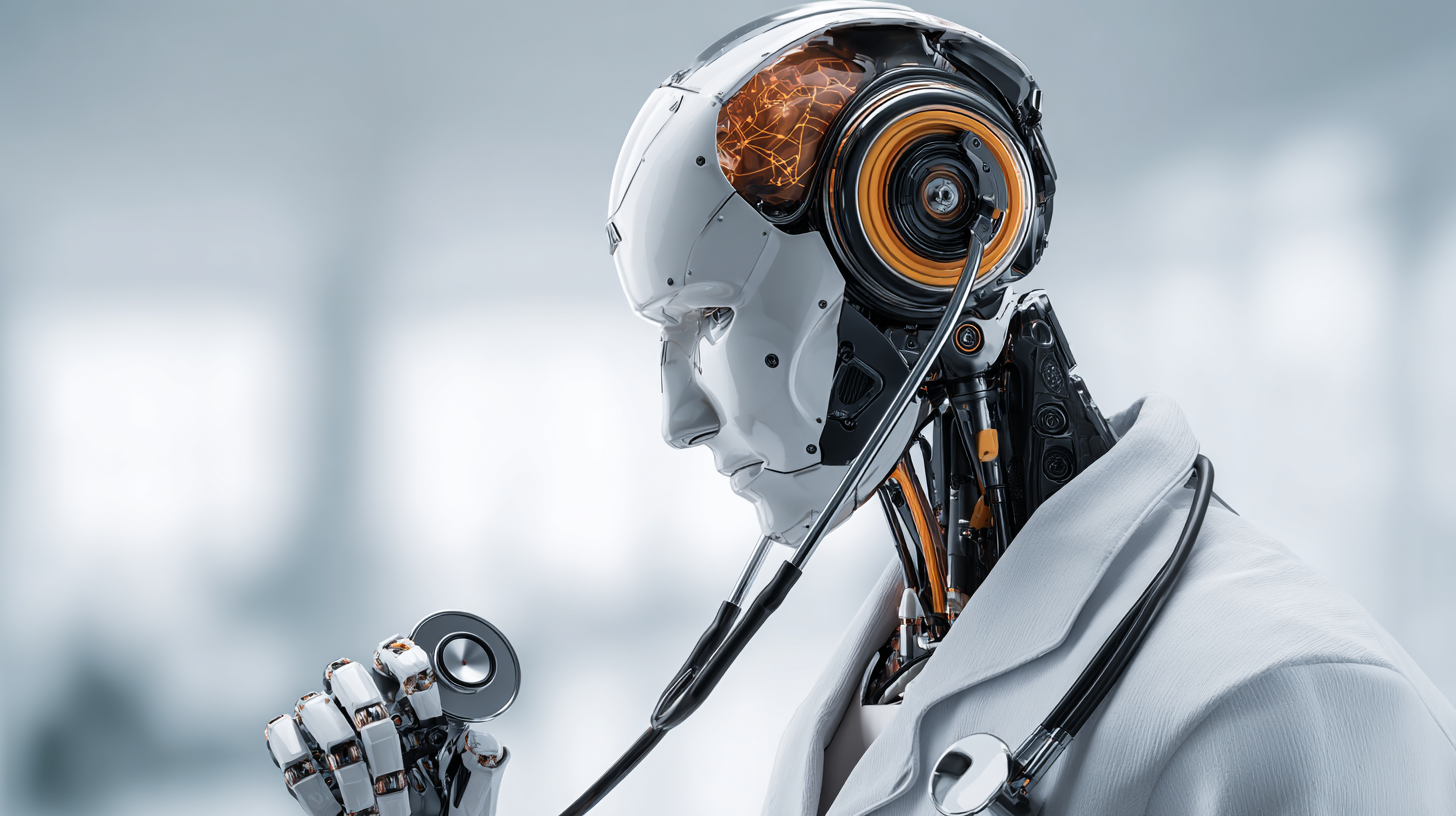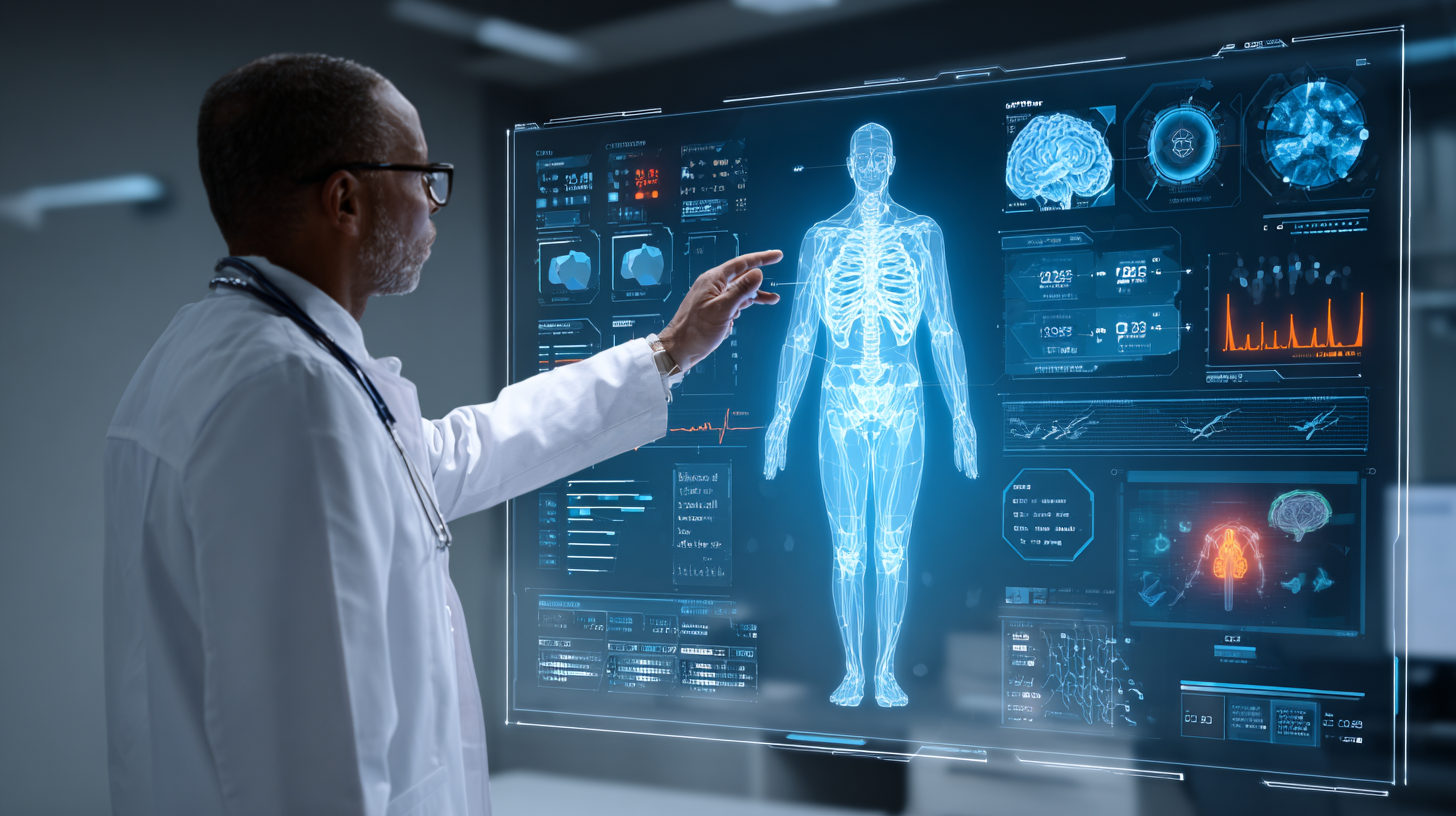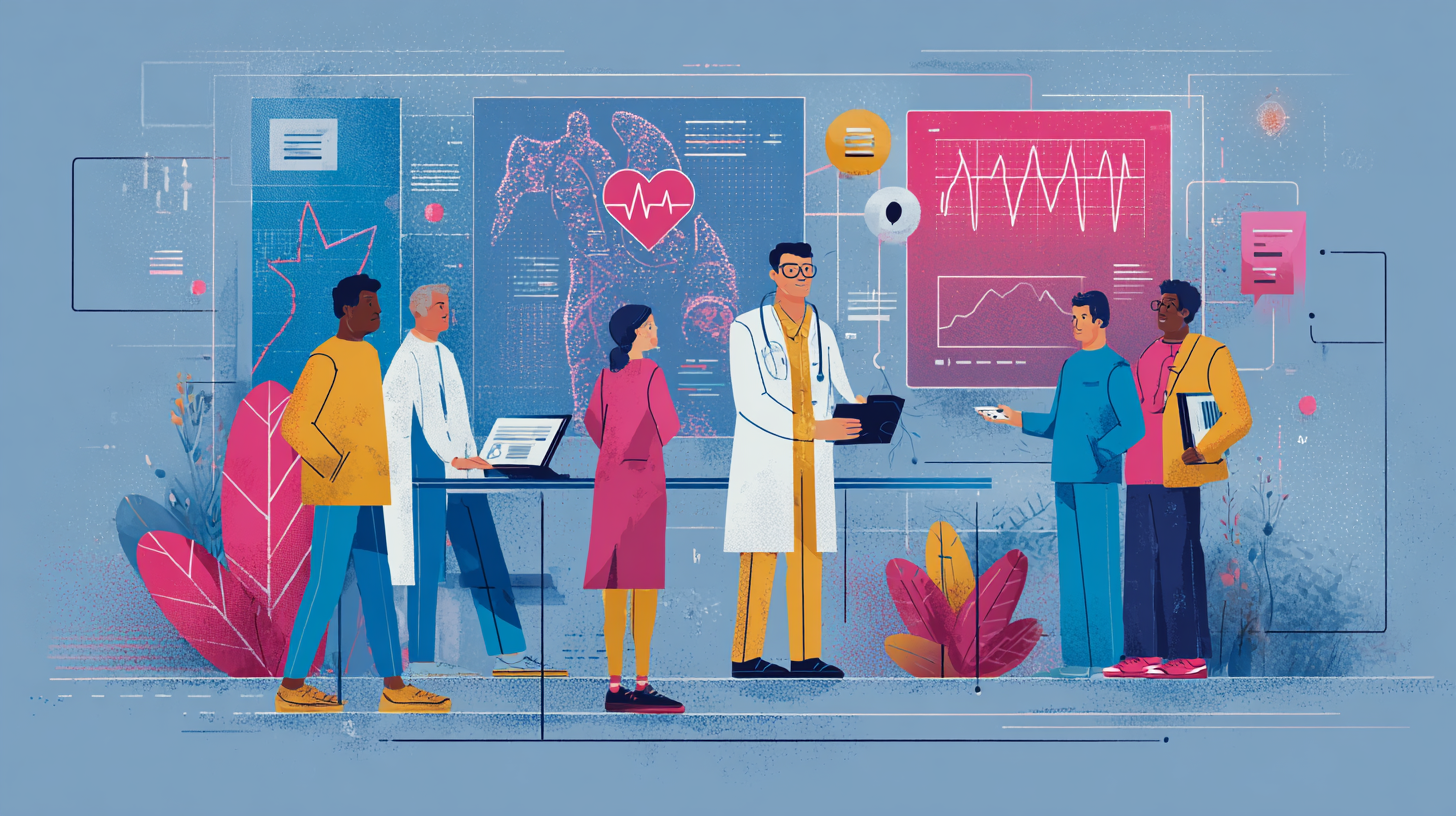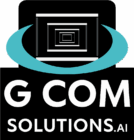
AI in Healthcare: Upskilling Medical Professionals for the Future
Artificial Intelligence (AI) is transforming numerous industries, and healthcare is no exception. With the growing presence of AI, medical professionals need to adapt to this changing landscape. Upskilling in AI is not just beneficial; it is essential for future-proofing your career in the medical field. This article will delve into the implications of AI in healthcare, the need for upskilling, and how you can actively engage in your own professional development.
The Rise of AI in Healthcare
AI technologies have emerged as critical tools in modern healthcare. Whether it’s diagnostics, treatment planning, or patient management, AI plays a significant role in enhancing the efficiency and accuracy of medical processes. The rise of telemedicine, AI-assisted diagnostics, and predictive analytics are just a few examples of how AI is reshaping healthcare delivery. As a medical professional, it’s important to recognize that these technologies are here to stay, and adapting to them will enable you to provide better patient care.
With AI’s ability to process vast amounts of data quickly and accurately, you can harness these tools to make more informed decisions. From electronic health records (EHRs) to imaging analysis, AI is enhancing the way you gather and interpret medical information, ultimately benefiting patient outcomes. So, it’s essential for you to understand these technologies and their applications to stay relevant in your field.

Understanding AI in Healthcare
It’s vital to have a foundational understanding of AI and its implications in healthcare. AI refers to a range of technologies that enable machines to perform tasks that typically require human intelligence, such as understanding language, recognizing patterns, and making decisions. This capability is particularly valuable in healthcare, where decision-making can be complex and data-intensive.
AI is being used in various applications, including aiding in radiology by identifying anomalies in scans, predicting patient deterioration, and recommending personalized treatment plans. The ability of AI systems to learn from data means they can continuously improve and adapt, offering more accurate diagnoses and treatment suggestions over time. Therefore, if you want to be an effective healthcare provider, you need to familiarize yourself with these tools and understand their strengths and limitations.
The Need for Upskilling
As AI continues to make strides in the healthcare field, the necessity for upskilling becomes increasingly apparent. Traditional medical training did not prepare you for the integration of AI into practice fully. Therefore, to remain competitive and effective, you must invest in learning about AI technologies.
Upskilling provides you with the knowledge and skills required to utilize AI effectively. This could involve understanding how to interpret AI-generated data, learning how to implement AI solutions in clinical settings, and grasping the ethical implications of AI in healthcare. Moreover, by familiarizing yourself with these tools, you can enhance the quality of care you provide and improve operational efficiencies within your practice or institution.
Embracing Lifelong Learning
To successfully navigate the evolving healthcare landscape, a commitment to lifelong learning is crucial. AI technologies are continuously advancing, meaning that your education will never be truly “complete.” By maintaining an attitude of curiosity and eagerness to learn, you will find yourself better equipped to adapt to new developments.

Engaging in online courses, attending workshops, and participating in seminars focusing on AI in healthcare will help expand your knowledge. Platforms are increasingly offering specialized courses dedicated to AI applications, ethical considerations, and deployment strategies in medical settings. By proactively seeking such opportunities, you empower yourself and position yourself as a valuable asset in your workplace.
Exploring Practical Applications of AI in Healthcare
Understanding the practical applications of AI in healthcare is vital. There are numerous areas within the field where AI is making a significant impact:
Diagnostics
AI-powered tools are enhancing diagnostic accuracy and speed. For example, machine learning algorithms are used to analyze medical images—such as X-rays, MRIs, and CT scans—to identify diseases like cancer at earlier stages. By learning from vast datasets, these AI systems can detect subtle changes often missed by the human eye.
For you as a healthcare provider, this means you can leverage AI as a second opinion. It’s not about replacing your expertise; rather, it augments your ability to make accurate diagnoses. Take the time to familiarize yourself with these interventions and integrate them into your practice for improved outcomes.
Treatment Personalization
Personalizing treatment plans based on individual patient data is another area where AI shines. Predictive analytics enable healthcare providers to analyze a patient’s history, genetics, lifestyle factors, and even social circumstances to tailor interventions that suit their unique needs.

By embracing AI-driven patient stratification, you can enhance treatment efficacy and minimize adverse effects. This level of personalization is particularly relevant in oncology and chronic disease management. Understanding how to apply AI in this way can dramatically transform patient care and improve your clinical practice.
Predictive Analytics
Predictive analytics involves using historical data to forecast future events. In healthcare, AI can assess patterns in data to predict patient outcomes, hospital readmissions, or the likelihood of developing specific conditions. For instance, through AI analytics, you might identify patients at high risk for cardiovascular events and intervene proactively.
As a medical professional, this allows you to enhance preventive care and improve patient engagement by informing them about their health risks. Delving into predictive analytics will help you driven toward better preventive strategies—an essential skill in today’s healthcare climate.
Operational Efficiency
AI is not limited to direct patient care; it plays a pivotal role in enhancing operational efficiency within healthcare settings. AI systems can manage scheduling, optimize resource allocation, and reduce administrative burdens, allowing healthcare providers to focus more on patient care.
Familiarizing yourself with AI tools that improve operational workflows will lead to remarkable changes within your institution. The efficiencies gained through AI applications can free up your time and energy, enabling you to devote more attention to your patients and their care.
Preparing for Governance Challenges
While AI presents immense opportunities, it also poses governance challenges that you should be aware of. Ethical considerations, data privacy, and informed consent are just a few critical areas that require attention.
Ethical Deployment of AI
Understanding AI ethics is essential for your practice. As AI becomes central to decision-making in healthcare, ethical dilemmas may arise. You need to critically evaluate how AI systems are developed, deployed, and monitored to ensure they serve the best interest of your patients. This involves being aware of potential biases in AI algorithms that may affect patient outcomes and decision-making.
Engaging in discussions about AI ethics within your professional community or attending relevant training sessions will sharpen your understanding and make you an advocate for responsible AI use in healthcare.
Regulatory Awareness
As AI technologies evolve, so too do regulatory frameworks governing their use. Staying informed about changes to regulations concerning AI in healthcare is crucial for ensuring compliant operations. You need to be aware of the guidelines established by regulatory bodies, such as the Food and Drug Administration (FDA) in the United States, related to AI medical devices and applications.
Understanding these regulations will help you navigate the compliance landscape, mitigating risks for both yourself and your healthcare institution. Regularly reviewing updates and participating in workshops on regulatory compliance in AI will equip you with the necessary knowledge.
Strategies for Upskilling in AI
Now that you grasp the importance of upskilling in AI, let’s explore some actionable strategies you can implement to level up your skills.
Online Courses and Certifications
With a trove of online resources, accessing quality education has never been easier. Look for certified courses in AI applications tailored specifically for healthcare professionals. Many reputable platforms offer courses that range from introductory to advanced levels, covering topics like machine learning, deep learning, and AI ethics.
These courses often include case studies and hands-on training, making learning practical and applicable to your work. By obtaining relevant certifications, you not only enhance your knowledge but also strengthen your professional profile.
Workshops and Conferences
Attending workshops and conferences focused on AI in healthcare can be invaluable. These events provide opportunities for networking, engaging with experts in the field, and learning about the latest innovations in AI. You’ll gain insights that you can bring back to your practice, ultimately improving your patient care.
Be proactive in seeking out such opportunities in your community or industry; even local health tech meet-ups or webinars can be beneficial for building your network and enhancing your skills.
Collaboration and Team Learning
Consider forming a study group or collaborating with colleagues who share your interest in AI. Engaging in group discussions allows knowledge exchange and encourages diverse viewpoints. You can brainstorm ways to integrate AI into your practice while sharing resources and experiences.
Collaborative learning fosters a supportive environment, allowing you to tackle challenges together and explore new AI applications as a team. This collective approach not only enhances your understanding but improves workplace dynamics as well.
Stay Updated on AI Trends
The landscape of AI in healthcare is ever-evolving. Keeping abreast of the latest trends, research, and technological advancements is crucial for your professional growth. Subscribe to reputable medical journals, podcasts, and blogs that focus on AI innovations in healthcare.
By incorporating a habit of regular reading and learning into your routine, you’ll become well-versed in emerging applications of AI, regulatory changes, and ethical debates. You’ll be better prepared to engage meaningfully in discussions on AI among peers and patients alike.
The Future of AI in Healthcare
As we look to the future, the role of AI in healthcare will only continue to expand. You must position yourself to take advantage of these advancements by remaining adaptable and open to learning. The future holds unprecedented potential for enhancing patient care and improving healthcare outcomes through AI.
However, it also entails responsibility. As a healthcare provider, you will play a pivotal role in embedding AI ethically and responsibly within your practice. By advocating for transparency, accountability, and patient-centered approaches, you can help shape a future where AI benefits both patients and providers.
Conclusion
Artificial intelligence is a powerful tool that can dramatically enhance your capabilities as a medical professional. The importance of upskilling in AI cannot be overstated, as it is essential for remaining competitive and providing optimal care to your patients.
Through embracing lifelong learning, pursuing relevant courses, and staying engaged in the evolving landscape of AI, you can ensure that you’re well-equipped for the future of healthcare. The journey may be challenging, but the rewards are immeasurable. So, take that next step toward mastering AI and be part of the exciting movement transforming healthcare.
If you found this article helpful, feel free to clap, leave a comment, and subscribe to my Medium newsletter for updates on AI in healthcare and more! Your engagement encourages continued exploration and sharing of insights into this pivotal topic.
